Valena Elizabeth Beety is the Robert H. McKinney Professor of Law at Maurer School of Law. Her experiences as a federal prosecutor in Washington, D.C., and as an innocence litigator in Mississippi, West Virginia, and Arizona, shape her research and writing on wrongful convictions, forensic evidence, prosecution, and incarceration. She is a co-author of the treatise Scientific Evidence (LexisNexis 6th Ed. 2022) (with Paul C. Giannelli, Edward J. Imwinkelried, Jane Campbell Moriarty, Andrea Roth, & Jennifer Oliva), and she has written on how technology and faulty forensic evidence can contribute to wrongful arrests and wrongful convictions. Beety is the author of the award-winning book Manifesting Justice: Wrongly Convicted Women Reclaim Their Rights(Kensington Books, 2022), and co-editor of The Wrongful Convictions Reader (Carolina Academic Press, 2nd ed., 2023) (with Russell Covey).
Program faculty and research
| Faculty member | Areas of expertise |
|---|---|
| Valena Beety | Criminal law and procedure Scientific evidence Wrongful convictions and faulty forensic evidence |
| Yvette Butler | |
| Fred H. Cate | Information privacy Data security Cybersecurity |
| Yvonne Cripps | Biotechnology and intellectual property |
Patent law Technology and innovation | |
| The legal profession Technology and law firm innovation |
| Patent and trademark law IP protection for plants and plant biotechnology |
| Cybersecurity Cybersecurity risk insurance Internet governance |
Bioethics Law and medicine Public health | |
Emerging technologies and private law Social customs, digital assets, and artificial intelligence | |
| Patent pools Big data and public policy |
| Jennifer D. Oliva | Diagnostic and treatment medical algorithms Health data privacy Scientific evidence |
| Cybersecurity Online privacy |
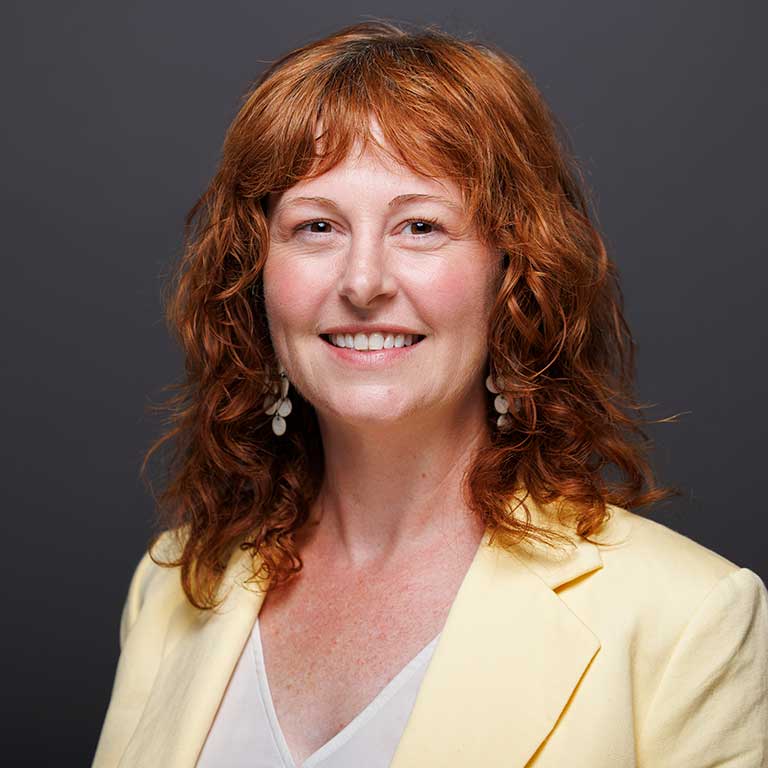
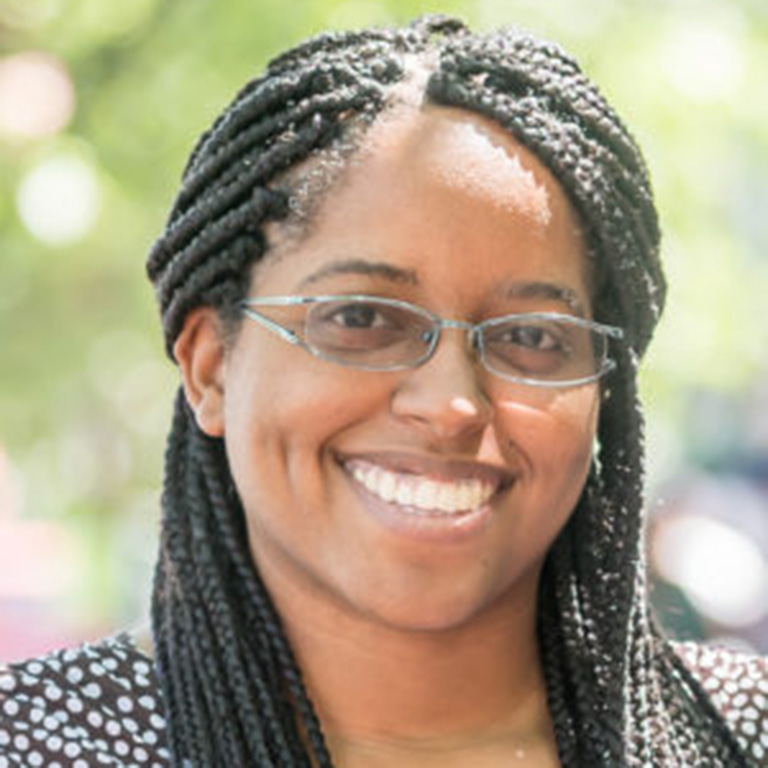
Yvette Butler's scholarship examines how the law, particularly the U.S. Constitution, protects or hinders the survival and resistance strategies of marginalized groups. This hindrance often comes in the form criminalization. Her research was inspired by and remains grounded in present day advocacy efforts, particularly those involving sex workers. Her articles, essays, and book chapters have been published in or are forthcoming in the California Law Review, Michigan Law Review, Routledge, and more.
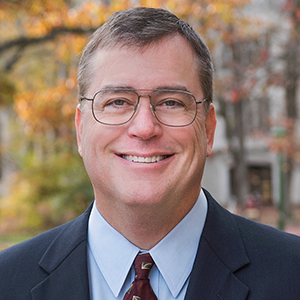
Fred H. Cate is vice president for research at Indiana University, IU Distinguished Professor, and C. Ben Dutton Professor of Law, and a senior fellow at the Center for Applied Cybersecurity Research. He specializes in information privacy and security law issues. He has testified before numerous congressional committees and speaks frequently before professional, industry, and government groups.
The author of more than 150 articles and books, he served as the privacy editor for the Institute of Electrical and Electronic Engineers' Security & Privacy and is one of the founding editors of the Oxford University Press journal, International Data Privacy Law. He is the co-author of a forthcoming book from Oxford University Press, Bulk Collection: Systematic Government Access to Private-Sector Data.

Yvonne Cripps, an internationally acclaimed scholar and teacher, became the first holder of the Harry T. Ice Chair of Law at Indiana University in 2000. Dr. Cripps specializes in biotechnology and intellectual property law. Her book Controlling Technology: Genetic Engineering and the Law, published in 1980, was the first comprehensive treatment of the legal implications of biotechnology. Her most recent research focuses on biotechnological advancements challenging previous legal definitions of personhood and on legal aspects of personalized medicine in relation to treatments targeted at the genomes of cancer cells.
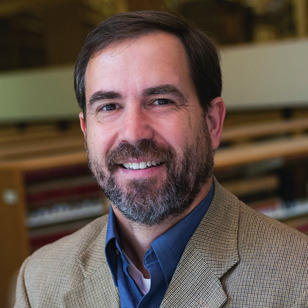
Norman J. Hedges joined the law school in January 2015 as a clinical associate professor of law. He came to Bloomington with over 16 years of experience in patent practice in Indianapolis, including 10 years in the Indianapolis office of the firm now known as Faegre Drinker, where he was named partner in 2007. He had been a member of the Law School’s adjunct faculty since 2014. Hedges' most recent work is Training Post-Millennial IP Lawyers: A Field Guide (with Mark D. Janis), 11 no. 3 Landslide (2019).

William D. Henderson is the Stephen F. Burns Professor of Law. His expertise focuses on the empirical analysis of the legal profession. He is widely cited in both prestigious legal journals and the general media as an expert on trends in the profession, and is recognized as an innovator in legal education initiatives. Most recently, he co-founded the Institute for the Future of Law Practice (IFLP, “i-flip”), a nonprofit that designs and delivers curricula and training for T-shaped legal professions (i.e., law combined with data, process, technology, design principles, and business).
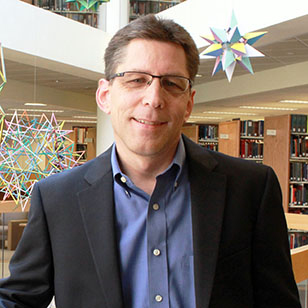
Mark D. Janis is the Robert A. Lucas Chair of Law and the director of the Center for Intellectual Property Research. Janis has written extensively on patent law, trademark law, design law, and the intellectual property/antitrust interface. His work has addressed issues concerning specialized intellectual property protection for plants and plant biotechnology, the application of design patent protection to graphical user interfaces, the trademark use doctrine in the context of online advertising practices, and many other topics that bear on the intersection between intellectual property law and technological innovation.
Janis's most recent publications are Research Handbook on Trademark Law Reform (with Graeme B. Dinwoodie, ed.), which examines current and future issues in trademark law across different jurisdictions and perspectives, and Patent Law: Cases and Materials (with Sichelman, et al.), an open-source, modifiable patent law casebook, the first of its kind. The book is a response to the challenge of keeping the cases, notes, and questions included in a traditional casebook up-to-date and timely. It will be accessible digitally or print-on-demand from LawCarta.com.
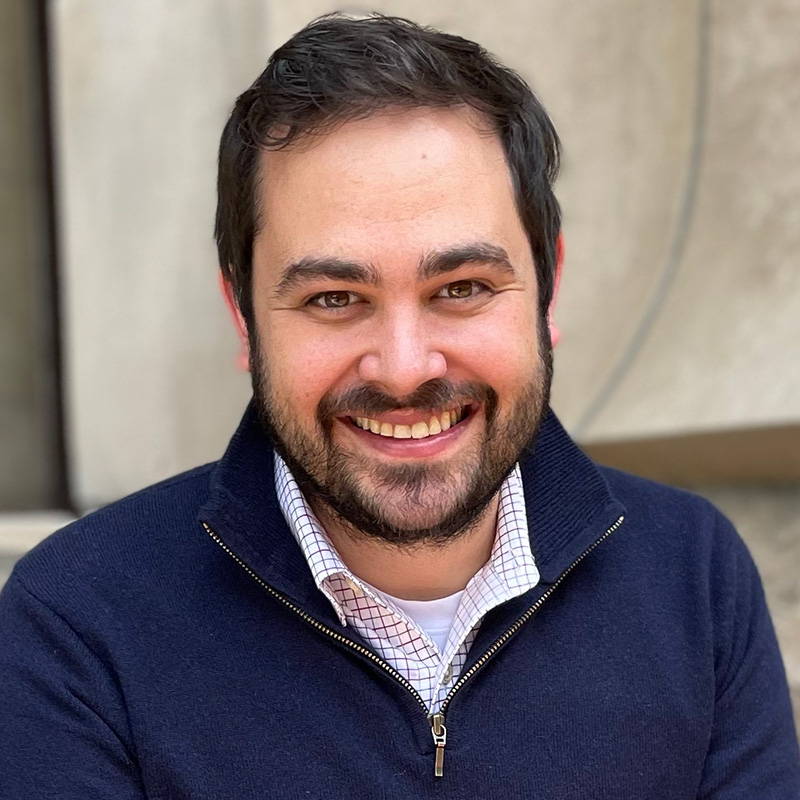
Dr. Asaf Lubin is an associate professor at the Indiana University Maurer School of Law and a fellow at IU’s Center for Applied Cybersecurity Research. Dr. Lubin’s research centers on the intersection of law and technology, particularly as it relates to the regulation of cybersecurity and privacy harms as well as policy design around governmental and corporate surveillance, data protection, and internet governance. His two most recent publications, "Insuring Evolving Technology” (28 Connecticut Insurance Law Journal, forthcoming 2021) and “Public Policy and the Insurability of Cyber Risk” (6 Journal of Law and Technology at Texas) both explore the relationship between insurance regulation and risky technologies, with a particular focus on the cyber insurance markets.
Dr. Lubin is currently leading a pioneering study on the interplay between different legal regimes regulating privacy and data protection in armed conflict situations. In the light of the technological advances in the fields of electronic surveillance, social engineering, predictive algorithms, big data analytics, artificial intelligence, automated processing, biometric analysis, and targeted hacking, a need for an inquiry into the interplay between different legal regimes in regulating privacy and data protection in wartime has emerged. The book-length compilation of papers will feature contributions from internationally renowned scholars and experienced practitioners and from emerging voices. The book is co-edited by Dr. Lubin and Dr. Russell Buchan (University of Sheffield) and will be published in 2022 by NATO Cooperative Cyber Defence Centre of Excellence in cooperation with IU’s Ostrom Workshop.
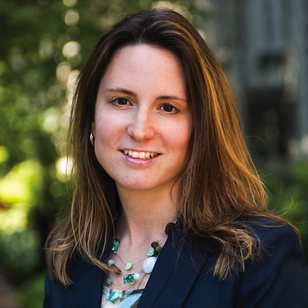
Jody Lyneé Madeira's scholarly interests involve empirical research; the role of emotion in law; the sociology of law; law, medicine, and bioethics; and the Second Amendment. Her most recent book, Taking Baby Steps: How Patients and Fertility Clinics Collaborate in Conception (University of California Press, 2018), takes readers inside the infertility experience, from dealing with infertility-related emotions to forming treatment relationships with medical professionals, confronting difficult decisions, and negotiating informed consent. Based on a wealth of qualitative and quantitative data (130 patient interviews, 83 interviews with reproductive medical professionals, and 267 patient surveys), Madeira investigated how women, men, and their care providers can utilize trust to collaboratively negotiate infertility’s personal, physical, spiritual, ethical, medical, and legal minefields.
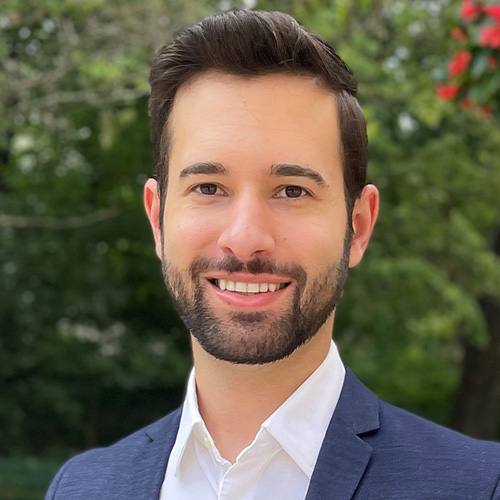
João Marinotti is an associate professor of law at the Indiana University Maurer School of Law, an affiliated fellow at the Yale Law School Information Society Project, and an affiliate at the Maurer School of Law Center for IP Research. His research lies at the intersection of emerging technologies and private law theory, including property, contract, and tort law. He focuses on the evolution and application of private law in the face of changing social, linguistic, and cognitive conceptualizations of technologies. Marinotti's current work addresses shared social customs and intuitions surrounding digital assets, prosthetics, and artificial intelligence.
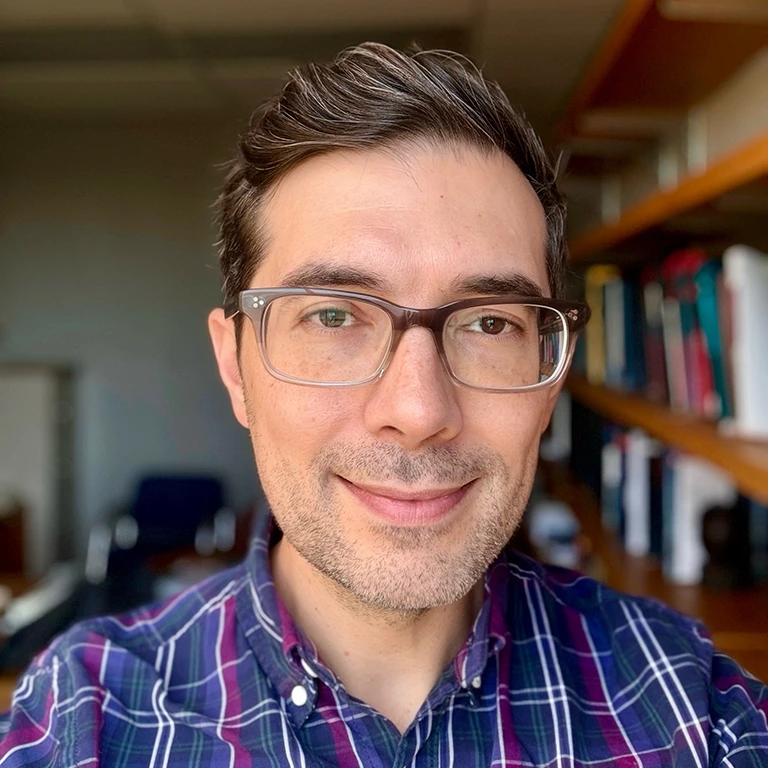
Mike Mattioli joined the Indiana University Maurer School of Law faculty in 2012. He specializes in intellectual property, data law, and contracts. Mattioli's research asks how cooperation can promote the common good. Through this lens, he has examined the pooling of cancer research data, patent pools for digital media, and how public policy shapes Big Data technologies related to health and public infrastructure. Mattioli's overarching goal is to uncover how law and policy can best encourage socially useful cooperation.
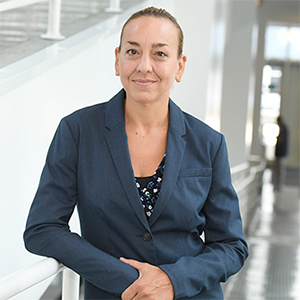
Jennifer Oliva is Professor of Law and Val Nolan Faculty Fellow at Indiana University Maurer School of Law. She has written extensively about medical diagnostic and treatment algorithms, the regulation of software as a medical device, health data privacy, and the admission of, and reliance on, scientific evidence in civil and criminal cases. She is a co-author on the treatise Scientific Evidence (LexisNexis 6th ed. Cum. Supp. 2023) (forthcoming) (with Paul C. Giannelli, Edward J. Imwinkelried, Jane Campbell Moriarty & Valena Beety) and her health law and evidence scholarship has been published by or is forthcoming in, among other publications, the Virginia Law Review, California Law Review, Duke Law Journal, Northwestern University Law Review, UCLA Law Review, and online companions to the University of Chicago Law Review and New York University Law Review. Professor Oliva is a United States Army veteran who serves as a Research Scholar at Georgetown Law’s O’Neill Institute for National & Global Health Law, a Senior Scholar with the UCSF/UC Law Consortium on Law, Science & Health Policy, and on the National Pain Advocacy Center’s Science & Policy Advisory Council. She has earned numerous awards for her scholarship, teaching, and service. She was selected as a 2019 Wiet Life Science Law Scholar by the Loyola University Beazley Institute for Health Law and Policy and a 2020 Health Law Scholar by the Saint Louis University Center for Health Law Studies and the American Society of Law, Medicine & Ethics. Professor Oliva was the recipient of the 2021 Health Law Community Service Award from the AALS Section on Law, Medicine, and Health Care and the Harry S. Truman Foundation honored her with the 2019 Truman Scholarship Foundation Ike Skelton Award for her commitment to public service.
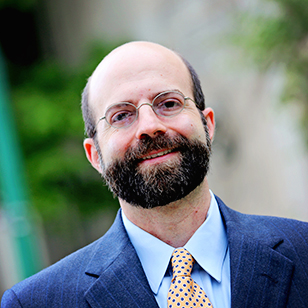
Joseph A. Tomain is a lecturer and senior fellow at IU's Center for Applied Cybersecurity Research. He has extensive experience in practice, teaching, and scholarship on free speech rights, particularly in online environments. His research includes examining the relationship, and often competing interests, between speech and privacy rights, as well as the cybersecurity implications that must be considered when analyzing online privacy.

